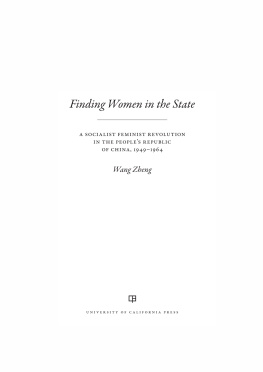This book does not ask what socialism is; it asks what it is to have lived through it. In foregrounding everyday experience, it offers a perspective on socialism not as a political system but rather as a kind of ecosystem, a dense fabric of dynamic, though unbalanced, interactions between institutional regulations and people regulated. The case studies from several former socialist countries focus on the translation of socialisms major ideological principles into motives guiding peoples lives. They are grouped around three common elementssocialist labor, the new socialist man, the socialist way of lifeemploying micro-perspectives to interpret sites of heterogeneity and ambivalence. Based on firsthand accounts, they look for minute deviations from the norms that have eventually led to renegotiation of the norms themselves. Focusing on routines, rather than extremes, they seek to understand socialism in its normal state.
But What Does Normal Mean?
Of course, none of the persons cited above was asked this question. Normal people do not do so. At least, not in normal situations. They know the answer. Perhaps they cannot easily spell it out, but they can definitelyalbeit intuitivelytell any deviations from the normal. And this is just enough. It is not their task to translate intuitions into concepts.
I however need to start with a concept. A concept is a word differing from most other words in that it is related to an institutional order (in the broad sense, including research paradigms). I shall start with the concept of norm and will then try to relate it to a specific institutional order (in the strict sense) and cultural code, that of state socialism.
Norm seems to be a key concept to think about culture, for culture has often been conceived of in terms of norms and normativity. This is where intricacies start, for the concept of norm has a certain spell. It means different things, which eventually turn out to be not so different. According to the dictionary, the first meaning of norm is standard, model, pattern, type (The Concise Oxford Dictionary 7th ed.). The derivatives are normal, that is, compliant with the norm, corresponding to the standard, customary, regular (of a person mentally and physically healthy), and normative, that is, defining/imposing norms and standards. On the one hand, the word norm and its derivatives have a neutral descriptive connotation referring to statistical averages, to what is widespread and usual. On the other hand, norm is a criterion, a standard to measure up to, something to be achieved or preserved. This idea of correspondence/compliance with standards imports another connotation, that of correctness. Thus it turns out that the apparently neutral description contains a trace of judgment as well.
This ambiguity can be detected in the very etymology of the concept and in its various uses. This is the spell of the words norm and normalthat they not only describe the actual state of things but also tacitly refer to a desirable state. They point not only to how things are, but also to how they should be. Even more, this correspondence/compliance in its turn also has a double meaning: on the one hand, it can be a technical correspondence, that is, correspondence to standards. On the other hand, it also contains the notion of ethical compliance, of moral correctness and righteousness. Thus it refers implicitly to the idea of justice. As a result, normal (as common, average, habitual) turns out to be at the same time normative (i.e., socially desirable). Although the distinction between fact and value, between the actual and the due, should be evident and indisputable, the concept of norm seems to elude such a logic.
As philosopher Ian Hacking has observed, contemporary ideas of normality as the statistical average excluding both positive and negative extremes were generated by the erosion of determinist conceptions during the last two centuries. Hacking sees a connection between the rise of statistical laws in lieu of determinism, on the one hand, and the rise of the idea of normality and deviation, on the other. No longer signaling a deficit of knowledge, indeterminism has become a kind of lawthe law of chancecreating order out of chaos, as any law does. Thus the idea of normality, stemming from the nineteenth-century cultural and intellectual climate, has come to replace the earlier idea of the nature of man.
Initially, normality was institutionalized through medical texts and practices. The contemporary meaning of the word was derived from the semantic pair pathologicalnormal as used in medicine. Pathology, which drew physicians attention at the turn of the nineteenth century, dealt not with the sick organism as a whole but with the sick organ, subject to study and treatment. One of the first physicians to promote this approach was F.-J.-V. Broussais (17721838) in France. According to Broussais, illness was caused by the pathological state of an organ, which differed from its normal state not in kind but in intensity. That is why it was necessary to study the pathologies of the organs and to find ways to bring them back to their normal state. Thus normal was the secondary notion, while the primary one was that of pathology. Much ridiculed by Balzac (who thereby perhaps paved the way for the term normal state into common language), Broussais was respected by another contemporary, positivist philosopher Auguste Comte (17981857), who adapted his principle to the study of the collective organism. With this extrapolation, the relation was reversed: The notion of normality became the leading one, from which all characteristics of the object had to be derived, and pathology was conceived as a deviation from the normal state. This implied that the normal was the center from which all deviations started. Therefore, paradoxically, although pathology was the opposite of norm, they turned out eventually










